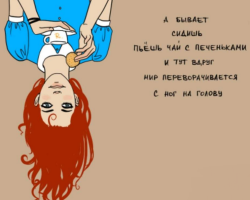A child-heir is a norm or a signal of the development of the disease. Why does the baby drink a lot of water and how to normalize the consumption of fluid - more on this in our article.
Content
- The norm of water consumption in children per day by age: Table
- How much water does a child need?
- Why is a small child constantly asks to drink, drinks a lot of water, liquids: reasons
- Signs of diseases if the child drinks a lot of water
- The child drinks a lot of sweet water, compote during the day and at night: is it necessary to give the child water, sweet water, compote at night and at night?
- How to normalize the amount of fluid consumed
- Video: How much does the child drink water?
Water forms the basis of the human body, is part of all tissues and ensures the course of life support processes - metabolism, the assimilation of beneficial substances, and the excretion of toxins. The daily norm of water intake is the concept of medium and depending on the weight of the body, the rate of metabolism, age and state of health.
The norm of water consumption in children per day by age: Table
Many parents are concerned with the increased need for the child for water. Most often, the cause of constant thirst is physiological processes in the body. But can this be considered the norm or is it still about pathology?
The following factors can influence the number of fluid consumed by the child:
- infectious diseases
- physical activity
- air temperature and humidity
- features of nutrition
- change of time of the year
- the choice of unsuitable clothes that impede thermoregulation
- moving to a terrain with other climatic conditions

The amount of water indicated in the table includes not only drinking water, but also a liquid received with mother’s milk or in the form of a milk mixture, as well as cereals, compotes, decoctions, juices, etc.
How much water does a child need?
- The newborn baby receives the main volume of fluid along with mother's milk. The norm of water with artificial and mixed feeding is about 100 ml per day. It is better to use special purified water for infants or filtered boiled water.
- An additional volume of fluid is necessary if the baby is sick (the temperature is increased, a change in stool, vomiting).
- After the introduction of complementary foods, the need for liquid increases. Doctors recommend adhering to the following norms - about 50 ml of water per kilogram of the child should account. After 10-12 months, when the baby begins to actively move, the daily need increases.
- At the age of 2-6 years, a child per day will be enough 1.2-1.5 liters of water, not counting sour-milk drinks, compotes, juices, tea, and cocoa.
- At an older age of 6-12 years, the daily norm increases to 1.7-2 liters. If the child attend sports, he needs an additional 0.5-1 liters of water.

Why is a small child constantly asks to drink, drinks a lot of water, liquids: reasons
Factors that cause increased thirst in children can be divided into 3 groups: physiological, psychological and pathological (associated with the presence of any disease). Attentive attitude to the state of the child and consultation of the pediatrician will help parents identify and adjust possible violations.
Physiological factors
- Weather. At high air temperatures, moisture evaporates from the surface of the body through sweating, so the need for drinking increases. If a child in the heat often asks to drink, this is absolutely natural and is explained by the characteristics of thermoregulation of the body.
- Air in the dwelling. During the heating season, the air in our homes has insufficient moisture. This contributes to the fact that moisture quickly evaporates with later, as well as from the mucous membranes, so the child often wants to drink.
- Physical activity. If the child is quite mobile, prefers active games or regularly playing sports, the need for fluid intake increases.
- Diet. Babies often want to drink when moving from breast milk to artificial feeding, at the beginning of complementary foods, as well as depending on the products that the nursing mother consume. In more adulthood, an increased need for drinking can occur if the child eats salty and fatty foods, eats a lot of sweets, makes frequent snacks of “dry”.
- You can’t constantly drink a child with sweet tea, juices and compotes. The baby experiences constant thirst for this, but refuses water, because it seems to him tasteless.
Psychological factors
- Addiction. Often, young children get used to sucking a bottle, at first replacing a dummy.
- To attract attention. If the baby often asks to drink, and also wakes up for this at night, perhaps he is trying to attract the attention of adults. This happens when heights from the chest or when a little brother or sister appears in the house.
- Nervous overstrain. Psychological discomfort in the family or stressful condition in connection with communication in the children's team can provoke an increase in diuresis and a constant feeling of thirst.

Signs of diseases if the child drinks a lot of water
- Liver diseases. In case of violation of the liver and gall bladder, the result of which are problems with the outflow of bile, a feeling of bitterness in the mouth, which the child is trying to drink water, may occur.
- Kidney diseases. In diseases of the urinary system, the amount of urine released per day may change. Bacterial infection entails a feeling of thirst and is usually accompanied by an increase in temperature, swelling, pain or discomfort during urination, a change in color and smell of urine.
- Hormonal malfunctions. Arise in case of violation of the normal production of hormones. For example, with a lack of a vasopressin hormone, an increase in the volume of urine occurs. The body tries to replenish the loss of fluid due to plentiful drinking.
- Diabetes. If the baby began to drink a lot, often ask for a toilet, you need to seek an endocrinologist's advice. After the necessary tests, the specialist will be able to evaluate the functioning of the pancreas. Other symptoms of diabetes are weakness, drowsiness, muscle atrophy, weight loss, dry mucous membranes and skin.
To make it easier for the doctor to conduct diagnostics, watching the child’s behavior for 5-7 days before admission. Write down the following indicators:
- the daily amount of urination
- volume, color, characteristic smell of urine
- the frequency of defecation and the character of the stool
- the presence of excessive sweating
- changes in behavior during periods of activity and recreation

The child drinks a lot of sweet water, compote during the day and at night: is it necessary to give the child water, sweet water, compote at night and at night?
The most necessary drink for a child at any age should be clean boiled water without adding sugar, syrup and other sweeteners.
As already noted, the amount of fluid used per day depends on the age of the baby, his well -being and the type of feeding.
- Up to 6 months. The baby, which is breastfeeding before the first complementary foods, does not have the need for additional fluid. He receives all the necessary amounts of drinking from breast milk.
- With an artificial and mixed type of feeding, the child needs additional fluid, since the mixtures in their composition differ from women's milk and have a higher density. Per day, the baby needs 50-100 ml of drinking (in hot weather it is permissible more). It can be boiled water, apple juice, herbal tea for infants. To offer the child drinking in between feeding and not replace the main meal with liquid.
- After 6 months. During the introduction of complementary foods, children begin to receive liquid as part of cereals, soups, vegetable and fruit puree, but since such food has a dense consistency, the need for drinking increases. At this age, in addition to water, the baby can be given juices, compotes, herbal tea. Try not to make drinks too sweet. Sugar itself cannot be useful, but besides this, the child, getting used to sweet food, does not want to subsequently perceive other tastes.
- After 12 months. Basically, by this age, the child stops eating mother's milk and confidently eats hard food. Before going to bed, it is permissible to give the baby water, compote or kefir-no more than 150-200 ml. Cow milk up to 3 years old is not recommended for children. If the child wakes up at night and asks to drink, give him only water. In the case when the baby refuses water, this is not about thirst, but about the habit from which he needs to be gradually weaned. At night, the body should rest, and not engage in digestion of food, so at this age it is not recommended to give kefir, milk or milk mixture at night.

How to normalize the amount of fluid consumed
Doctors have recently argued a lot about whether we have been drinking water enough. It is important from childhood to teach children to drink ordinary non -carbonated water in the required quantity. If the baby drinks too much and often, but healthy, pay attention to the lifestyle of your family.
- The temperature and humidity of the air in residential premises. If the child asks to drink at night, the cause may be too hot and dry air in the bedroom. The optimum temperature during sleep should be 18-20 ° C with a humidity above 50%. The room before bedtime needs to be well ventilated. If necessary, install an air humidifier or hang a wet towel.
- Healthy diet. If after a visit to the doctor there was no pathology, review the diet. Exclude salted, fried, fatty foods, sweet drinks, fast food, chips, salted nuts and crackers.
- Psychological climate. Pay sufficient attention to the child during the day, protect him from adult conflicts, provide the correct daily routine and calm sleep. If you see that the child is overexcited in the evening, refuse to view the cartoons before bedtime, together make the baby a relaxing bath and read the fairy tale.






